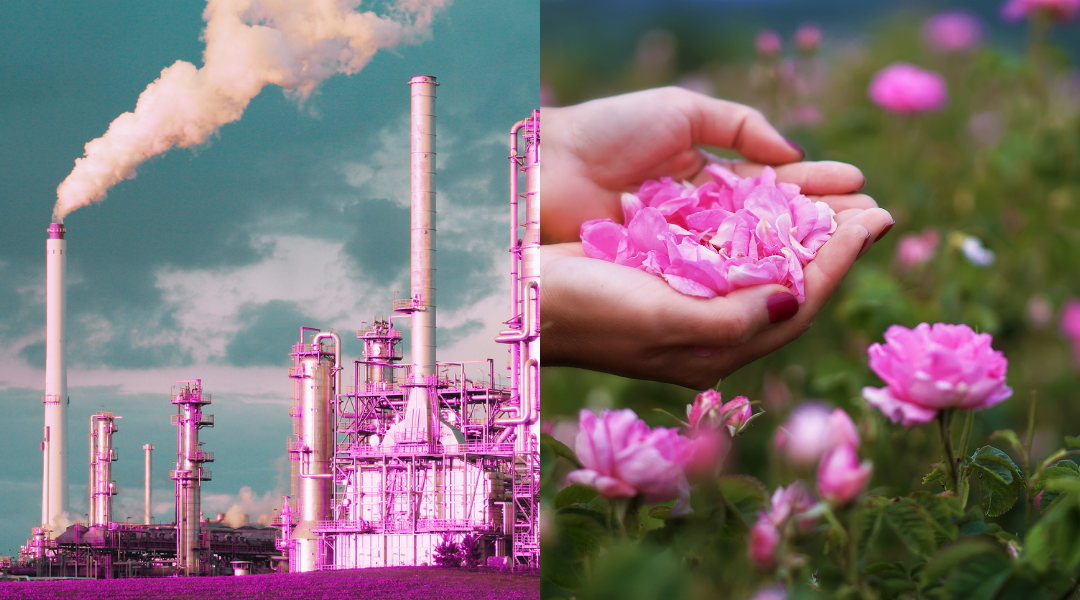When we think about skincare, we often focus on how products make our skin feel or the benefits they claim to offer. Many common skincare ingredients are derived from petroleum or natural gas. These ingredients are often used because they are inexpensive, versatile, and long-lasting. In conventional skincare, it's estimated that up to 80% of ingredients can be derived from petrochemicals, especially in mass-market products. But what are petrochemicals, and how do they affect not only our skin but also the planet?
Petrochemicals are chemical compounds derived from petroleum or natural gas. They are used across many industries, including skincare and cosmetics, as emulsifiers, preservatives, emollients, and solvents. Common petrochemicals include mineral oil, paraffin wax, petroleum jelly, and synthetic fragrances. While these ingredients may enhance the texture or shelf life of skincare products, they come with significant environmental consequences.
The process of extracting and refining petrochemicals has a devastating effect on the environment. Drilling for oil and natural gas involves the destruction of ecosystems, contributing to deforestation, habitat loss, and water contamination. Oil spills cause catastrophic damage to marine life and coastal environments. The process of refining petroleum into usable chemicals also emits large amounts of carbon dioxide, contributing to global warming.
Additionally, many petrochemicals are not biodegradable, meaning they persist in the environment long after they are discarded. When petrochemical-based skincare products are washed off, these compounds enter our waterways, impacting aquatic life and the health of entire ecosystems. Microplastics and liquid microplastics, often derived from petrochemical sources, also accumulate in oceans, further polluting the planet.
Plant-based skincare ingredients are a more sustainable option for several reasons:
1. Renewability: Plants are a renewable resource, meaning they can be regrown and harvested without depleting the planet’s natural reserves. In contrast, petroleum is a finite resource, and the process of drilling and refining contributes to environmental degradation.
2. Biodegradability: Plant-based ingredients break down naturally in the environment, whereas petrochemical-based compounds can persist for years, polluting land and water ecosystems.
3. Lower Carbon Footprint: The cultivation and processing of plant-based ingredients typically result in lower greenhouse gas emissions compared to the drilling, refining, and transportation of petrochemicals.
4. Support for Sustainable Farming: When you choose plant-based skincare, you’re often supporting sustainable agricultural practices, which help preserve biodiversity, promote soil health, and reduce water usage.
The beauty industry is at a crossroads. While petrochemical-based ingredients have long been a staple in skincare products, the environmental costs of extracting and refining these substances are too high to ignore. By choosing plant-based alternatives, you can nourish your skin with ingredients that are not only effective but also sustainable. The shift to eco-friendly, plant-based skincare helps protect the planet and supports a future where beauty doesn’t come at the expense of the environment.
Next time you shop for skincare, take a close look at the ingredient list and opt for products with Ecocert Cosmos or USDA Organic certification, which ensure zero petrochemicals. Your skin—and the planet—will thank you.

